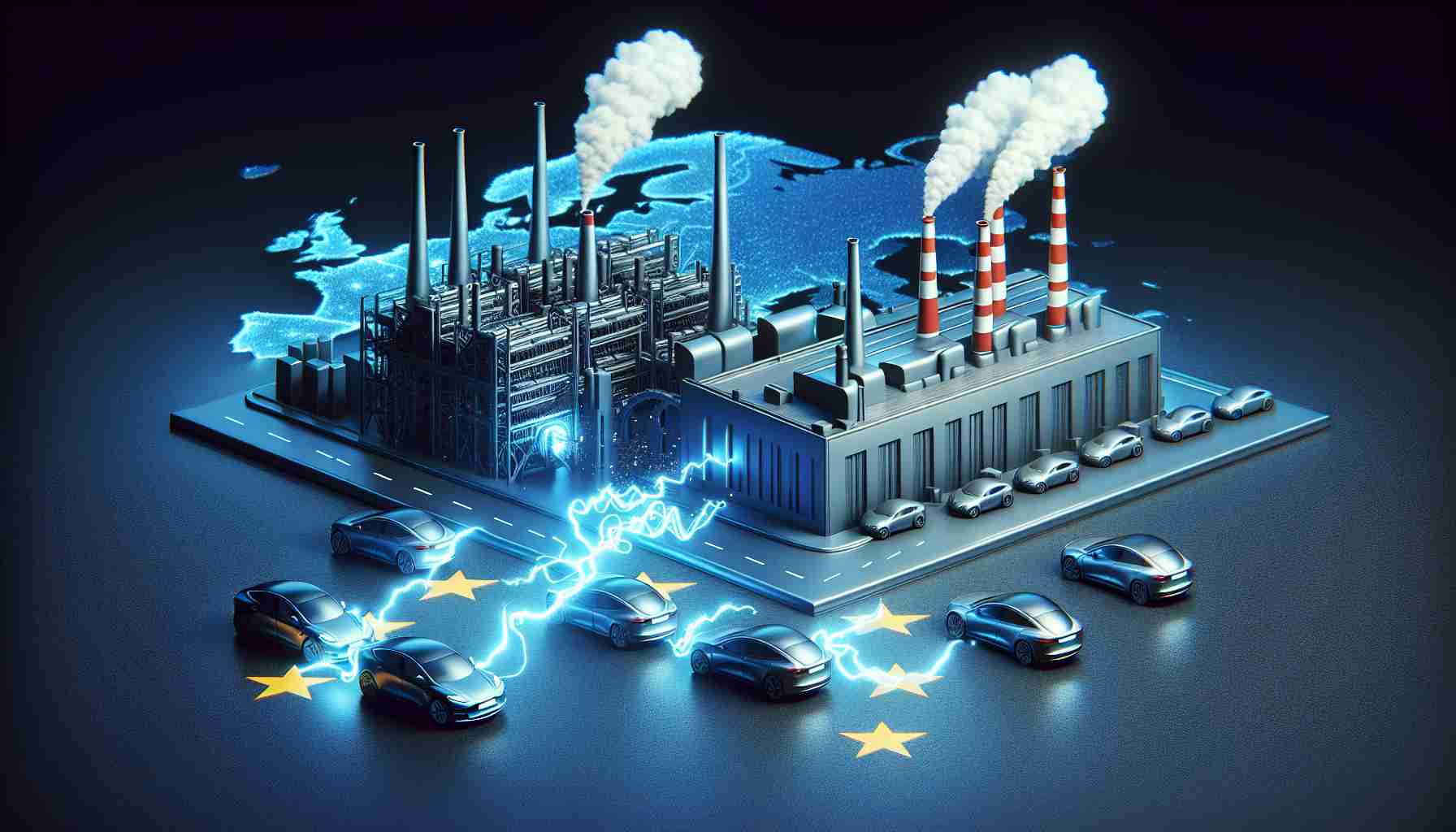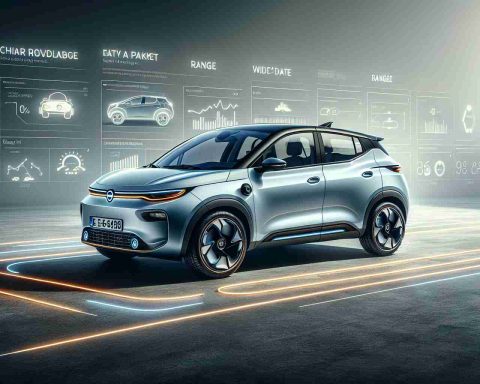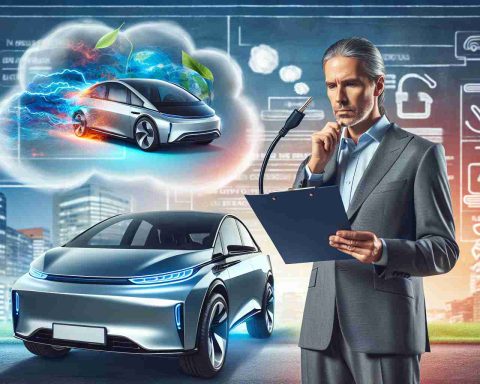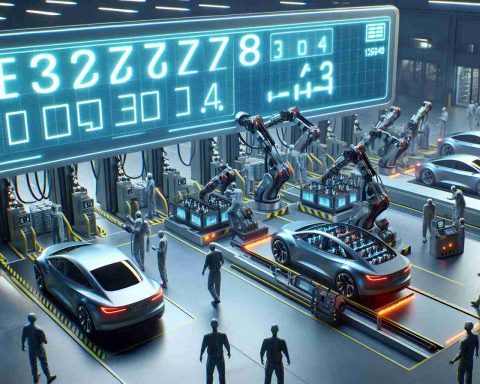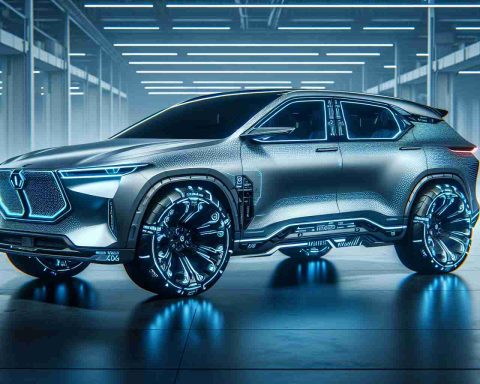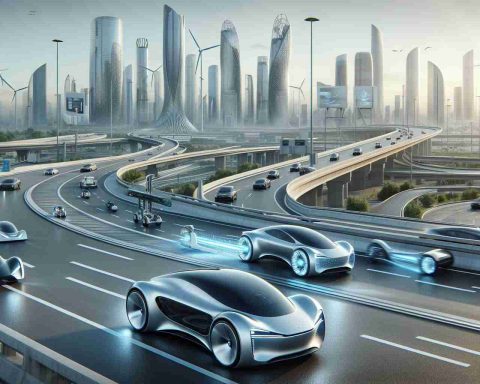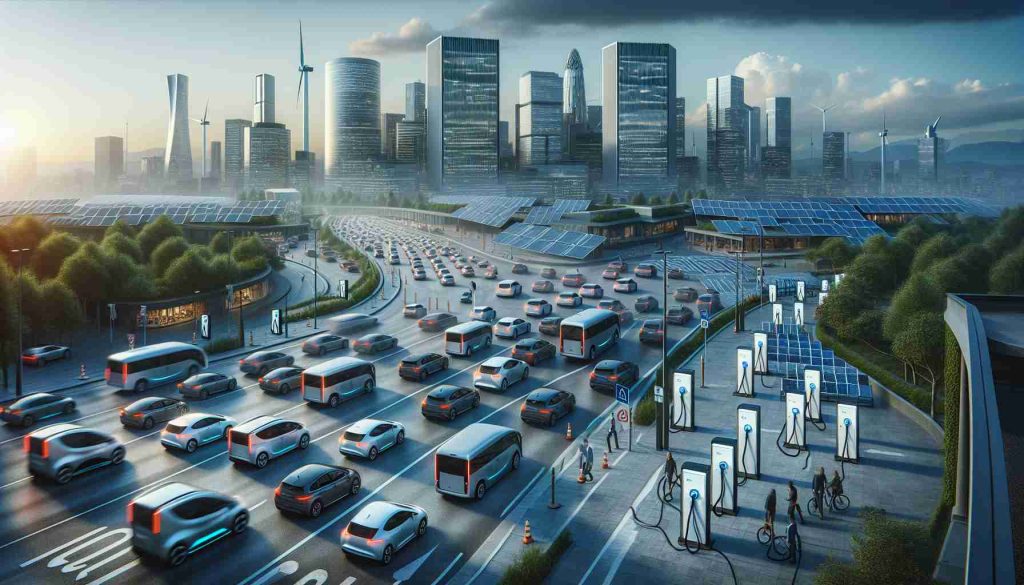- Tesla and BMW are legally challenging the European Commission’s new tariffs on Chinese electric vehicles.
- The tariffs include a 20.7% rate on BMW’s electric MINI Cooper and 7.8% on Tesla’s Shanghai-built EVs, plus existing import taxes.
- Chinese competitors like BYD and Geely will face tariffs as high as 35.3%, raising concerns over fair competition.
- BMW’s CEO has proposed a uniform 2.5% tariff for both EU and US markets to reduce costs for consumers.
- The situation could hinder the supply of electric vehicles and slow down the transition to greener alternatives.
- Tesla has experienced a significant drop in sales in Europe, with a 63% decline reported in France.
In an electrifying showdown, Tesla and BMW have thrown down the gauntlet against the European Commission, challenging hefty new tariffs on Chinese-made electric vehicles. This legal battle, lodged in the EU’s General Court, reflects the escalating tensions as automakers rally against what they deem unfair regulations that threaten their competitive edge.
The European Commission’s recent decision imposes a staggering 20.7% tariff on BMW’s electric MINI Cooper from China and an additional 7.8% on Tesla’s Shanghai-built EVs. Other Chinese brands, including BYD and Geely, face tariffs soaring as high as 35.3%, all on top of an existing 10% import tax. This crackdown stems from the EU’s accusation that Chinese subsidies give local manufacturers an unfair advantage and distort competition.
At a recent conference, BMW’s CEO boldly proposed a single, equitable tariff of 2.5% for both the EU and the US, aiming to eliminate exorbitant markups and deliver lower prices for European consumers. Critics argue that these tariffs could severely limit the supply of electric vehicles, slowing the transition to greener transportation.
While both giants are grappling with tough choices of absorbing costs or hiking prices, the stakes are high. Tesla’s sales in Europe have already taken a nosedive, with a staggering 63% drop in France.
As this high-stakes drama unfolds, one thing is clear: The future of electric mobility in Europe hangs in the balance, and consumers may bear the brunt of these costly trade wars. Stay tuned as this electric saga continues!
Electric Showdown: Tesla vs. BMW – Who Will Prevail Against EU Tariffs?
The Ongoing Battle of Automakers Against EU Tariffs
In a groundbreaking legal confrontation, Tesla and BMW have joined forces to challenge the European Commission’s substantial new tariffs imposed on electric vehicles (EVs) imported from China. This case has been filed in the EU’s General Court, highlighting the growing frustrations among automakers regarding regulations perceived as detrimental to their competitive advantage in the European market.
# The Tariff Landscape
The recently introduced tariffs are hefty, with the European Commission setting a 20.7% tariff on the BMW electric MINI Cooper produced in China and an added 7.8% on Tesla’s EVs manufactured in Shanghai. Additionally, various Chinese brands, such as BYD and Geely, are slapped with tariffs as high as 35.3%, tacked onto the current 10% import duty. The EC’s stance hinges on accusations suggesting that subsidies from the Chinese government provide overwhelming support to local manufacturers, consequently skewing competition within the European market.
# BMW’s Proposal for Fair Tariffs
At a recent industry conference, BMW’s CEO proposed a singular, uniform tariff of 2.5% for electric vehicles across both the EU and the US. This bold recommendation aims to address the issue of steep price hikes and make these vehicles more affordable for European consumers. The CEO argues that such a change would foster a more equitable market environment and promote widespread adoption of electric vehicles.
# The Impact on Electric Vehicle Supply
Critics of the tariffs argue that these measures could lead to a significant reduction in the supply of electric vehicles in Europe, consequently hampering the shift towards more sustainable transportation options. The ramifications of these tariffs could extend beyond manufacturers, impacting consumers who may face increased vehicle prices or limited choices.
Key Questions
1. What are the specific impacts of the new tariffs on electric vehicle prices in Europe?
– The new tariffs are likely to increase the cost of electric vehicles significantly. Manufacturers may either absorb these costs, which could hurt their profit margins, or pass them on to consumers, further escalating vehicle prices at a time when affordable EV access is crucial for shifting to cleaner transportation.
2. How might these tariffs affect the overall EV market in Europe?
– The introduction of higher tariffs could stifle competition and limit the variety of electric vehicles available in Europe. This reduction in supply may slow the transition to electric mobility as consumers find fewer options at competitive prices, subsequently hindering the EU’s climate goals.
3. What is the likelihood of success for Tesla and BMW in their legal challenge?
– The success of Tesla and BMW’s legal challenge is uncertain and hinges on the arguments presented in court. If they can convincingly demonstrate that the tariffs are disproportionate and detrimental to fair competition, there may be a potential for a ruling in their favor. However, prevailing legal frameworks often favor regulatory bodies, making the outcome unpredictable.
Market Insights and Trends
As global competition for electric vehicles intensifies and consumer expectations evolve, automakers are facing critical decisions regarding pricing strategies and sourcing. The industry is observing trends such as:
– Increased Investment in Local Production: Companies may prioritize local manufacturing to circumvent tariffs and enhance competitive positioning.
– Technological Innovations in EVs: The quest for cost-effective and sustainable production methods will drive ongoing innovations in the industry.
– Shifts in Consumer Preferences: As consumers become more environmentally conscious, demand for electric vehicles is projected to rise, but this could be curtailed by increasing costs due to tariffs.
Moving Forward
The outcome of the legal challenge and the resulting market dynamics will shape the future of electric mobility in Europe. Automakers will need to consider strategies that not only comply with new regulations but also meet consumer demands for affordability and sustainability.
For more details on the electric vehicle market and trends, visit Tesla or BMW.
